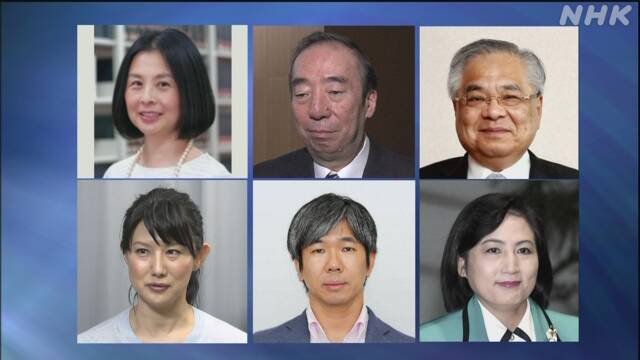I find the concept of male social climbing interesting.
Surely the women in question know they are courted for their position, rather than for love. I.e. it will be a marriage of convenience.
Do they, so to speak, sell themselves dearly?
Or do they take one for the family? I.e. allowing their father to basically adopt a suitable son-in-law? - After all in Japanese culture you are indebted to your parents.
What is the balance in such a marriage?
The husband is indebted to his wife, for his new position. Does that mean that he will be subservient to his wife? Or will he take the traditional position of the Japanese husband in being the head of the family?
In what happens if she divorce him?
And can we expect Princess Aiko, to be courted by a social climber?
TBF, in Japan (like in any other countries in Asia), it's not unusual for the parents to "pick" the suitable partner for their child. The couple then is introduced and if there's no big deal breaker, they marry. Along the way they will/can learn to respect (and maybe, love) their spouse. It could be like "Hey, I know this nice young man (read: potentially has bright future), do you want to meet him?" For politician, it could be a member in his party. It's "safer" to court the parents than courting the daughter. In many case, the daughter doesn't really mind to be a "typical" wife too.
Add to the problem is family honour. Other than the parents will want their child happiness, there's also this preconception that the child's failure is a shame for the family as a whole. So the parents may do anything not to let it happen or, at the very least, to cover it up from public (hence the hikikomori). The parents' love then turns into saving face as Japanese values their honour among other.
Let's say, Mako married Kei, not long after Kei went bankrupt. How would it look for a daughter of the crown prince living in an LDK with her jobless husband? Either Fumihito would have to keep giving her (them) money or he had to use whatever connection he had crown prince so Kei could get a "respectable" job. And how the public will think about it, especially among the younger generation who's facing a dire employment issue currently happening in Japan? Let's not pretend that Kei would get nothing from his marriage to Mako, at the very least he'll get a golden key to enter high society (=> opportunity). That's why in the past, the husbands were among (former) kuge or daimyo families. Background check is important.
After all, Japan is still operating within "who-know-who". Skip the "after-work-drink" with your colleague or refuse your senpai/senior's invitation to a drink (which you'll be the one who pay), you can forget getting promotion in the near future no matter your achievement (unless you can snatch the sacho/manager's daughter, of course).
Adopting son in law mostly happens in old establishment (by old, I mean centuries old) such as tea house or ryokan. Depend on the type of bussiness they run, the wife still have her own role as okami (proprietress) who takes responsibilities for all matters caused by running their ryokans or restaurants. The son in law usually is picked among employee/apprentice based on his competency/knowledge of the said bussiness. Say, it's wagashi shop, the daughter marries one of the chef then afterward the husband will head the kitchen (wagashi production) while the wife (the daughter of past shop owner) will handle the front store (dealing with customer, finance, etc). When the heir is a son, he has more freedom to pick a wife, but still after (and sometimes even before) they marry, she will undergo training to be an okami (done by her mother in law), but in this case as okami she won't have as much responsibility than the heiress-okami.
The thing is, for some people, marriage is just part of life, something to do when you reach a certain age. And love is not as "glorified" as in the western (it's so weird to say "I love you" to your own parents. A 6 years may say "daisuki, ka-chan" to his mum and she may say it back, but when a 20 years old tells his mum that sentence, he might wish the earth to shallow him while his mum will ask him "what's wrong?" (with frown on her face)). Even saying "daisuki" or "aishiteru" to your spouse is just weird, the more modern couple may choose to use "I love you" instead.
Not to worry though, those stay-at-home wives in those loveless marriages are not always the innocent "victim" in this kind of "arrangement". There's a relatively new Japanese expression "heijitsu hirugao tsuma" which refers to housewives having afternoon affairs while their husband's are working (usually with a younger men).





